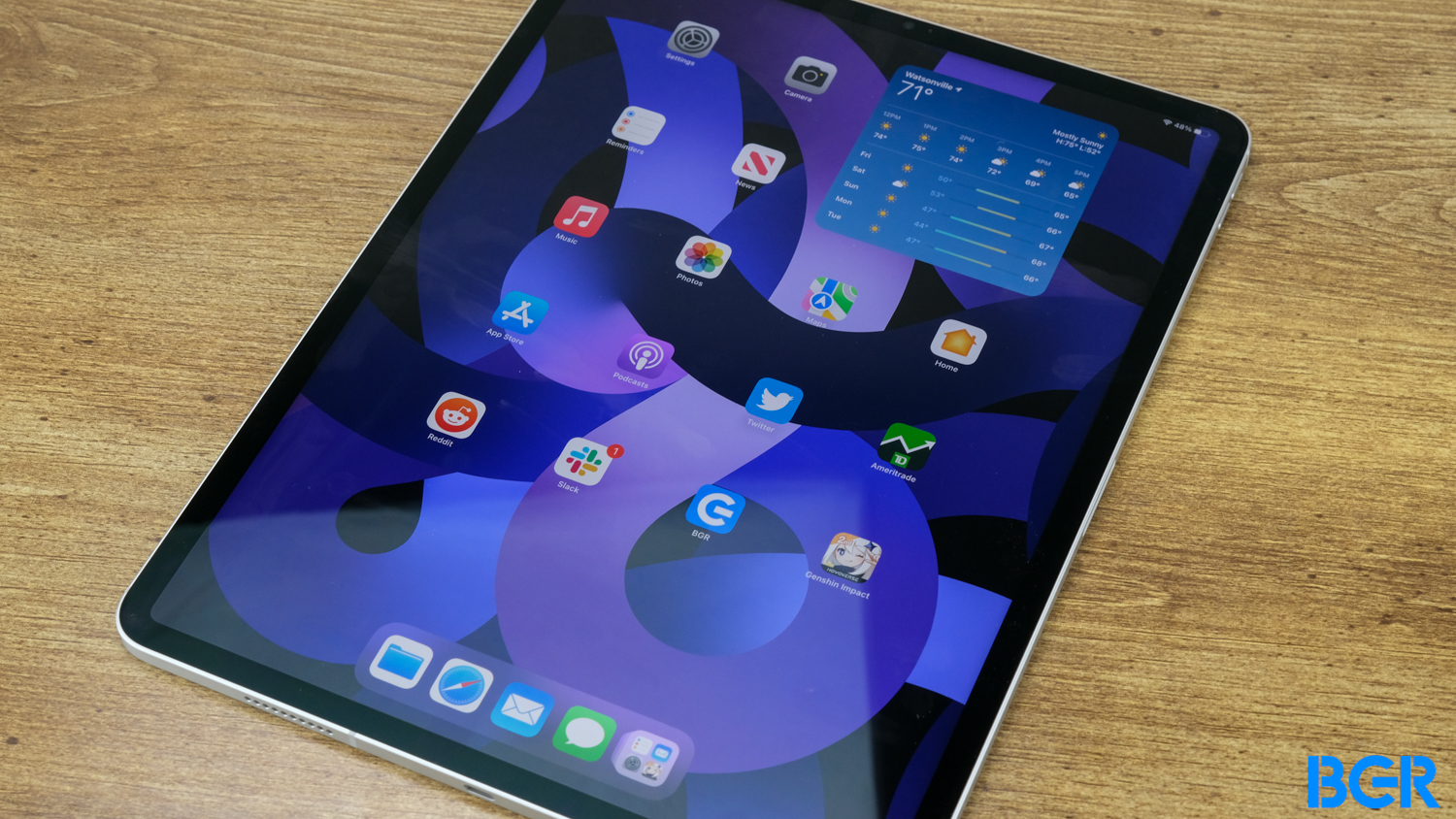
iPad Pro OLED display production will soon begin at Samsung and LG
Apple’s next big upgrade for iPad and MacBook concerns the display. After using OLED panels on all iPhone models except for the iPhone SE, Apple is reportedly looking to bring the OLED display tech to iPad Pro, MacBook Air, and MacBook Pro. But it can be challenging to manufacture larger OLED panels to fit devices with screens ranging from 11 inches to 13 inches.
Reports in recent years addressed these complications, with Apple reportedly having dropped Samsung from its iPad OLED screen supply chain for failing to manufacture screens according to its specifications. But that seems to no longer be the case. Samsung and LG have reportedly begun preparations to manufacture OLED panels for the larger Apple devices.
Apple currently uses LCD screens on almost all iPad and MacBook models. The exceptions are the 12.9-inch iPad Pro, the 14-inch MacBook Pro, and the 16-inch MacBook Pro, which feature miniLED panels. The upgrade to OLED would help Apple improve the display experience significantly.
OLED panels are more efficient and deliver better brightness and contrast ratio. They also support 120Hz refresh rates more efficiently, a feature Apple calls ProMotion on its devices.
Korean outlet ETNews notes that the local display industry has begun preparation to mass produce the OLED panels Apple needs for the future iPad and MacBook models.
Samsung Display apparently confirmed that it is manufacturing OLED panels for the iPad. It’s working with partners on manufacturing lines. The company plans to manufacture the screens on its sixth-generation A6 line in Asan, South Chungcheong. The screens should be included on the 2024 iPad Pro.
Apple plans to use a “hybrid” OLED panel tech that combines flexible and rigid OLED screen tech. The iPad maker refused flexible-only OLED panels for iPad as they reportedly looked dented. Here’s an excerpt from a Google translation of the ETNews report:
OLED applied to the iPad is characterized by a combination of flexible and rigid OLED technologies. It is a technology that applies the thin film encapsulation (TFE) process of flexible OLED on the glass substrate used in rigid OLEDs. It is said to be a fusion of the two technologies, so it is called a “hybrid” panel.
The glass substrate has to be very thin, which was a manufacturing challenge. The report notes that suppliers have overcome the technical limitations and will go forward with investments. Chemtronics will supposedly invest 242.6 billion won ($192 million) to build a sixth-generation OLED etching facility.
Similarly, LG plans to manufacture hybrid OLED screens for the iPad. The company is preparing for mass production at its 6th-generation plant in Paju. LG Display will reportedly work with Avatech for etching.
Such investments indicate a significant commitment to Apple’s OLED needs for large-screen devices. This implies Apple could add OLED panels to multiple devices in the coming years, including the iPad Pro and MacBook. The report says the 14-inch and 16-inch MacBook Pros should get OLED panels in 2026.
In previous reports, Apple insiders Ross Young and Ming-Chi Kup said that Apple might introduce MacBooks with OLED panels next year. The 13-inch MacBook Air and Pro are the most likely to get the screen upgrade.
Furthermore, Apple competitors might use the same screen tech for future tablets and laptops.
Stay connected with us on social media platform for instant update click here to join our Twitter, & Facebook
We are now on Telegram. Click here to join our channel (@TechiUpdate) and stay updated with the latest Technology headlines.
For all the latest Technology News Click Here
For the latest news and updates, follow us on Google News.

